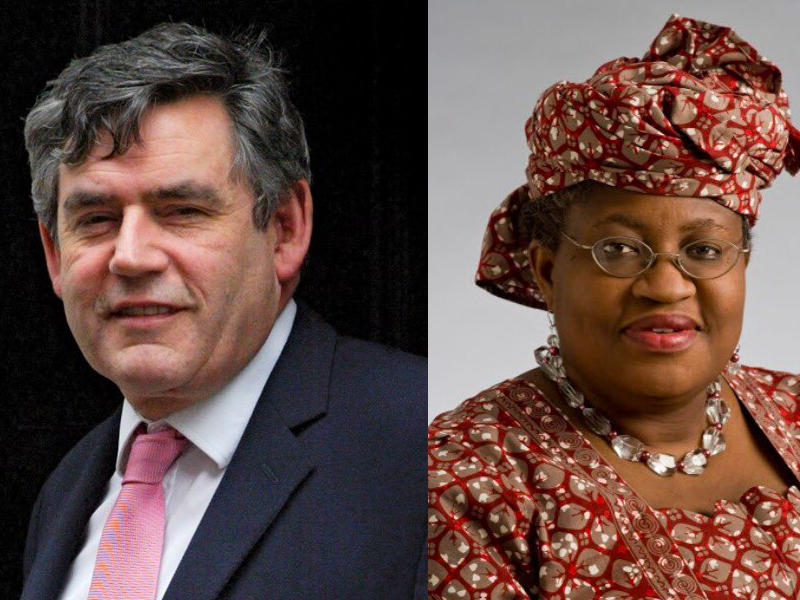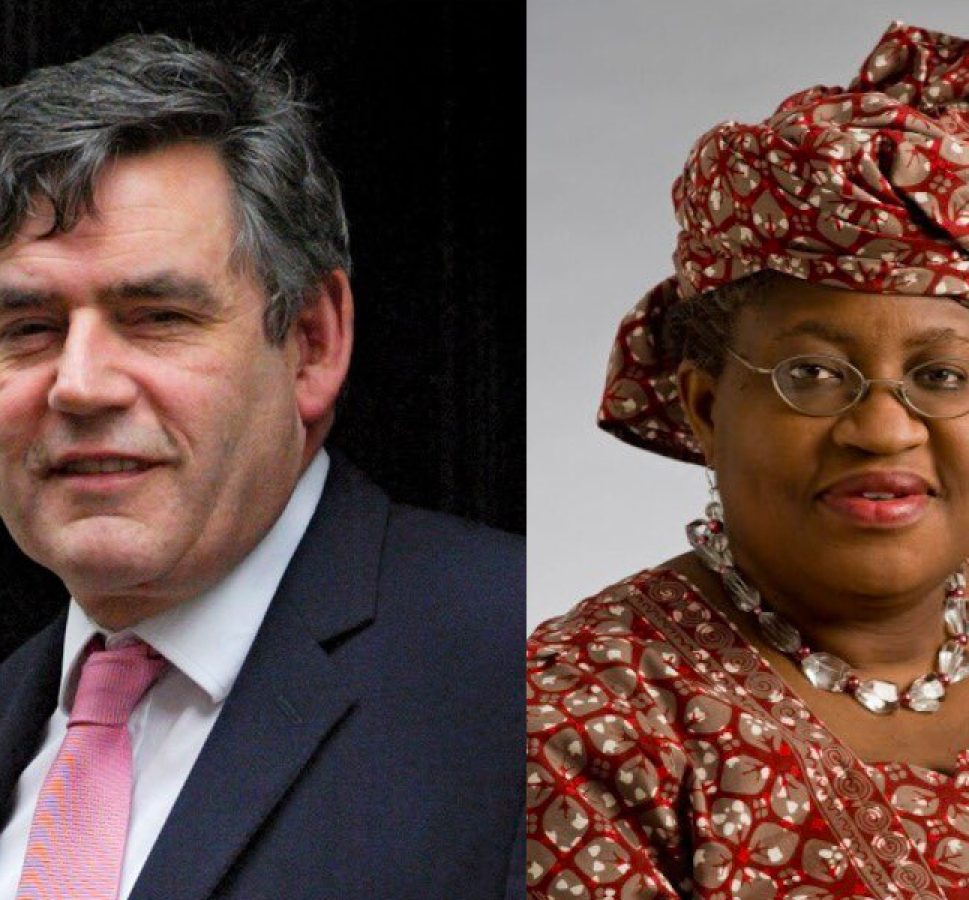
Former Prime Minister of the United Kingdom, Gordon Brown, on Tuesday, stressed the need for what he termed a “new multilateralism,” to address global challenges, such as poverty, financial and climate crises, among others, as well as build stronger collaboration among countries and institutions.
Director-General of the World Trade Organisation (WTO), Dr. Ngozi Okonjo-Iweala, also called for increased global trade and economic ties that would foster peace and shared prosperity.
Speaking during the “Presidential Lecture Series” at the ongoing 2023 WTO’s Global Public Forum in Geneva, Switzerland, Brown pointed out that international cooperation needed to be forged by countries and institutions even against the odds.
According to him, “Today, we have to learn from the mistakes of the past and we have to do things better. That is why I think we need to think of where we are.
“Our generation’s problem cannot be resolved by nations staying on their own. However big and powerful they are, they cannot even be resolved by bilateral and regional interventions, however well meaning.
“Climate change, pandemics, financial contagion and other problems can only be addressed by globally coordinated actions involving all us.
“So, we need to engage all countries in the search for global responses for global problems. Without this, we cannot be sure that climate change can ever be addressed, pandemics ever effectively controlled, financial contagion averted and global injustices properly addressed.”
Brown said there was need to also seek revitalised global institutions.
He stated, “We must come together in dialogue to scrutinise the ideas we have so that we can get the right answers. That is because there are many bold and interesting initiatives that had been floated that need to be effectively managed together.
“There is need for reform agenda for the multilateral institutions so as to address global challenges and promote prosperity.
“With a new multilateralism, Africa will have a new bargaining power, not just for its mineral resources, but for its markets.
“The bigger reason why Africa should support new multilateralism is that the scale of resources required to mitigate and adapt to climate change cannot be met without massive global support.”
On her part, Okonjo-Iweala called for increased global trade, in her statement in the 2023 edition of the WTO’s World Trade Report launched in Geneva, on Tuesday.
The report showed that international trade had exhibited remarkable resilience, swiftly recovering from the COVID-19 pandemic and adapting to the war in Ukraine. It noted that trade was crucial during the pandemic for scaling up production of medical supplies and vaccines and for bringing them to where they were needed.
The statement said, “The post-1945 international economic order was built on the idea that interdependence among nations through increased trade and economic ties would foster peace and shared prosperity.
“For most of the past 75 years, this idea guided policymakers, and helped lay the foundation for an unprecedented era of growth, higher living standards and poverty reduction.”
Okonjo-Iweala stated, “Today, this vision is under threat, as is the future of an open and predictable global economy.
“The WTO is not perfect – far from it. But the case for strengthening the trading system is far stronger than the case for walking away from it.”
She said closer economic integration had led to massive reduction in the share of the global population living in extreme poverty and deprivation. The WTO boss, however, pointed out that integration and income convergence had been much slower in some developing economies, particularly in Africa.
According to her, “Within countries, the inequality picture is more mixed. Several economies have experienced adjustment challenges from rapid and pronounced shifts in global trade flows, notably those linked to China’s rapid ascent as a major trading power, following its 2001 accession to the WTO.
“While in some members, increased trade came along with increased within-country inequality, in others, more trade came with increased economic inclusion.”
Okonjo-Iweala warned that a retreat from economic integration could roll back recent development gains, make it harder for countries to grow their way out of poverty, and harm future economic prospects for the poorest people the most.
“Fragmentation in global trade would also make it harder to meet environmental challenges,” she said, stressing that many of the biggest challenges could only be effectively solved through global cooperation.
Speaking during a media briefing to launch the report, Chief Economist of the WTO, Ralph Ossa, noted that re-globalisation offered a better path forward.
Ossa explained that starting with an analysis of the current state of globalisation, the report confirmed that geopolitical tensions were beginning to affect trade flows, including in ways that pointed towards fragmentation of trading relationships.
The WTO chief economist stated, “WTO Secretariat calculations find, for example, that goods trade flows between two hypothetical geopolitical blocs – based on voting patterns at the UN General Assembly – have grown 4-6 per cent more slowly than trade within these blocs.
“However, the report contends that, despite these findings, international trade continues to thrive, implying that talk of de-globalisation is on balance still not supported by the data.
“The publication points to the expansion of digital services trade, environmental goods trade, and global value chains in addition to the resilience of trade to recent global crises.
“The report goes on to examine the relationship between economic integration and three major challenges facing today’s global economic order: security and resilience, poverty and inclusiveness, and environmental sustainability – areas, in which arguments have gained ground that globalisation has not delivered as expected or exposes countries to excessive risks.
“Looking at the evidence, the report makes the case that ‘re-globalisation’, which is the renewed drive towards integrating more people, economies and pressing issues into world trade, is a more promising solution to these issues than fragmentation.
“The report shows that trade openness is strongly linked with a reduced likelihood of conflict and has led to sharp declines in poverty for over four decades.
“Also, technology improvements enabled by trade have had a strong impact in reducing carbon emissions.
“Finally, the report emphasises the need for more trade and more cooperation to effectively address the major issues that policymakers are facing the world over – from security to inclusiveness to climate change.”






